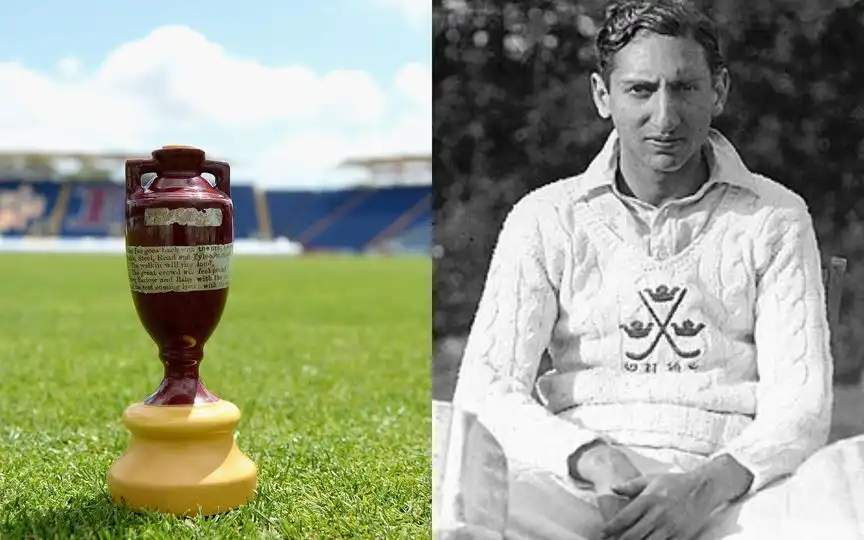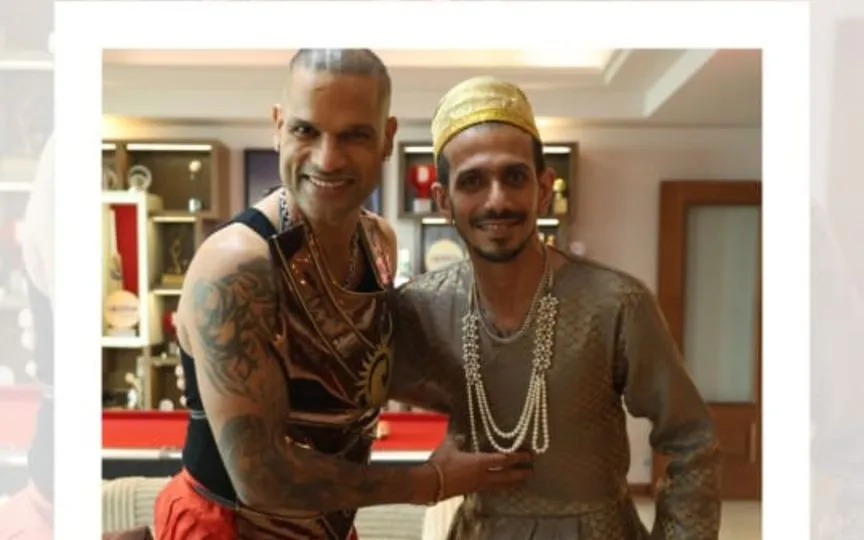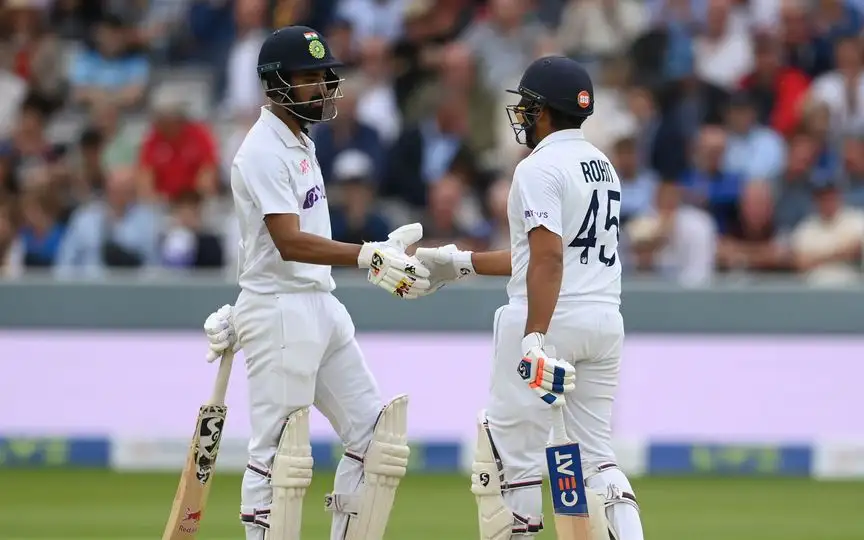![Iftikhar Ali Khan Pataudi [Source: @ICC/x.com]](https://onecricketnews.akamaized.net/parth-editor/oc-dashboard/news-images-prod/1750321337427_iftikhar_ali_khan.jpg?type=hq) Iftikhar Ali Khan Pataudi [Source: @ICC/x.com]
Iftikhar Ali Khan Pataudi [Source: @ICC/x.com]
In cricket's rich tapestry of remarkable achievements, one record stands for its uniqueness - Iftikhar Ali Khan Pataudi remains the only Test cricketer to have played for both England and India. His extraordinary journey across two nations tells a story of talent, principle, and the complex dynamics of cricket during the colonial era.
The England Chapter: A Debut For The Ages
Iftikar Ali Khan Pataudi's Test career began most spectacularly during one of cricket's most controversial bilateral contests. Selected for England's 1932-33 Ashes tour to Australia, also known as the infamous 'Bodyline Series' - he made his Test debut at the Sydney Cricket Ground in circumstances that would define both his career and character.
![Iftikhar Ali Khan Pataudi scored a century in his debut Test for England [Source: @IndiaHistorypic/x.com]](https://onecricketnews.akamaized.net/parth-editor/oc-dashboard/news-images-prod/1750321479321_iftikhar_ali_khan(1)(1).jpg?type=mq) Iftikhar Ali Khan Pataudi scored a century in his debut Test for England [Source: @IndiaHistorypic/x.com]
Iftikhar Ali Khan Pataudi scored a century in his debut Test for England [Source: @IndiaHistorypic/x.com]
Following in the footsteps of Indian cricket legends Ranjitsinhji and Duleepsinhji, Pataudi announced his arrival on the international stage in the best possible way - with a magnificent century (102) on debut. The achievement was remarkable not just for its timing but for its quality against a revered Australian attack.
England won the first Test convincingly by 10 wickets, and Pataudi's century seemed to herald the beginning of a promising international career. However, his second Test in Melbourne turned out to be on the other side of the spectrum as he managed only 15 and 5 in a match that would effectively end his ties with England cricket.
The Bodyline Controversy: Where Principle Met Career
The most significant talking point of Pataudi's career came not through his batting but through his moral stance. England captain Douglas Jardine's bodyline tactics, designed to neutralise the great Sir Donald Bradman, required the fielders, including Pataudi, to take specific positions to support the aggressive strategy.
When Pataudi refused to take his place in the field, considering the tactics unsporting, Jardine's swift and cutting response was - " I see His Highness is a conscientious objector". This confrontation marked the beginning of the end for Pataudi's career as an English cricketer.
His show of character, putting principles ahead of his career, came at an enormous cost. Dropped after the Melbourne Test, he returned home before the series ended, effectively burning the bridges with English cricket. Yet his county form for Worcestershire in 1933 and 1934 was so exceptional that selectors could not ignore him entirely. He earned one final recall for a single Test against Australia in 1934, his third and last appearance in English whites.
The Decade-Long Wait For India
![Iftikhar Ali Khan Pataudi [Source: @PictureSporting/x.com]](https://onecricketnews.akamaized.net/parth-editor/oc-dashboard/news-images-prod/1750321626138_iftikhar_ali_khan(2)(1).jpg?type=mq) Iftikhar Ali Khan Pataudi [Source: @PictureSporting/x.com]
Iftikhar Ali Khan Pataudi [Source: @PictureSporting/x.com]
While Pataudi was representing England, he was simultaneously courted by Indian cricket. The irony was striking - as he was falling out with English cricket authorities, India was eager to secure his services. He was considered for captaining India's very first Test match in 1932 at Lord's but withdrew his name for consideration.
The same pattern was repeated in 1937 when he was appointed captain for India's tour of England, only to withdraw at the last moment, citing health concerns. For a decade, Indian cricket waited for its 'Nawab' to return home.
Leading India: The Bittersweet Homecoming
When Pataudi finally donned the Indian whites in 1946, the moment was laden with symbolism. At 36, he was well past his prime, having played minimal first-class cricket in recent years. More significantly, this was the last tour by undivided India to England, coming just a year before Independence and Partition.
The numbers from the tour tell a tale of two contrasting performances. In the first-class matches, Pataudi showed flashes of his old brilliance, accumulating 981 runs at an average of 46.71. These included memorable centuries against Nottinghamshire and Sussex. These innings reminded the spectators of the magical stroke player who had once demolished top bowlers with elegant footwork and expansive shot-making.
However, when it came to Test cricket, it proved to be too much of a challenge for the ageing maestro. In the five innings that he batted in during the three-match series, Pataudi managed only 55 runs, averaging just 11. India lost the series 1-0, and Pataudi's captaincy came under criticism. The contrast between his county and Test performances highlighted how the highest level of cricket demands peak physical and mental sharpness.
Unmatchable Legacy: Six Tests, Two Nations
Pataudi's complete Test record reads like cricket's most exclusive club membership - 6 Test matches, three each for England and India, with 199 runs. The numbers may seem modest, but they represent something unprecedented in cricket history.
For England (1932-1934): Three Tests, highlighted by that memorable debut century, before his moral stance ended his career.
For India (1946): Three Tests as captain, where declining skills couldn't match his enduring leadership qualities.
The Trophy Tribute And Change Of Names
Recognition of Pataudi's unique achievement came in 2007 when the Marylebone Cricket Club (MCC) commissioned a trophy in his honour. The Pataudi Trophy, created to commemorate the 75th anniversary of India's first Test match, was awarded to winners of the India vs England Test series played in England. The gesture acknowledged both Iftikhar Ali Khan and his son Mansoor Ali Khan Pataudi, also known as 'Tiger', for their contributions to cricket.
However, before the current India tour of England, the authorities delivered a controversial blow to the Pataudi legacy. The trophy was renamed the Tendulkar-Anderson trophy, honouring Sachin Tendulkar and James Anderson instead. The decision sparked widespread criticism from cricket legends and historians.
The Enduring Legacy
Iftikhar Ali Khan Pataudi died tragically in 1952 after suffering a heart attack while playing polo - coincidentally on his son Mansoor's 11th birthday. However, his unique achievement of representing both Englan and India remains unmatched and, given modern cricket's strict eligibility rules, likely unmatchable.
Pataudi's story transcends statistics, representing a cross-cultural bridge during a pivotal period in history. Pataudi stands as cricket's ultimate dual citizen, a man whose career reflected the complex realities of colonial cricket while his principles defined his character.
Today, as the game grapples with questions of identity and belonging, Iftikhar Ali Khan Pataudi's remarkable journey serves as a reminder that some achievements in cricket are genuinely one of a kind.





